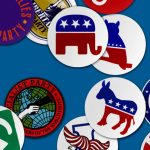A Closer Look at the Influence of Lobbying in Politics

In the realm of modern politics, where the decisions made by policymakers have far-reaching consequences, the influence of lobbying stands as a formidable force that shapes the very fabric of governance. Lobbying, the practice of advocating for specific interests and policy outcomes, has long been an integral part of democratic societies. However, its power and significance have raised concerns about the fairness, transparency, and accountability of political processes.
The Mechanics of Lobbying
Methods and Strategies Employed by Lobbyists to Sway Political Decisions
Lobbyists are adept at employing a wide array of methods and strategies to influence political decisions. One of the most prevalent tactics is conducting direct advocacy, where lobbyists engage in face-to-face interactions with policymakers, providing them with compelling arguments and data to support their cause. This personal approach allows lobbyists to establish relationships, build trust, and tailor their messages to the specific concerns of decision-makers.
Additionally, lobbyists often engage in grassroots mobilization, rallying public support for their interests through campaigns and petitions. By harnessing the collective voice of citizens, lobbyists can demonstrate the level of public backing for a particular issue, effectively swaying the political discourse.

The Role of Campaign Contributions, PACs, and Super PACs in Lobbying Efforts
Financial leverage is a critical aspect of lobbying, and campaign contributions play a significant role in this realm. Lobbyists and interest groups often donate funds to political candidates who align with their objectives. This financial support not only fosters goodwill but also provides lobbyists with access to candidates and policymakers, allowing them to directly advocate for their interests.
Political Action Committees (PACs) are another prominent tool used by lobbyists to pool funds from various contributors and distribute them strategically to candidates who can champion their causes. Additionally, the emergence of Super PACs has further amplified lobbying efforts, as they can raise unlimited funds to support or oppose specific candidates without direct coordination.
The Influence of Lobbying on Policy Outcomes
Examining Specific Policy Areas Heavily Influenced by Lobbying
In the intricate world of politics, lobbying exercises a profound impact on policy outcomes, often shaping decisions in specific policy areas. One such area is healthcare, where pharmaceutical companies and healthcare providers wield considerable lobbying power. Through strategic lobbying efforts, these entities advocate for policies that safeguard their financial interests, leading to debates on issues like drug pricing and healthcare reform. Similarly, the energy sector is another prominent arena influenced by lobbying, with fossil fuel companies and renewable energy advocates vying for favorable regulations and subsidies to advance their respective agendas.
How Lobbying Affects Legislation, Regulation, and Policy Implementation
Lobbying plays a pivotal role throughout the policymaking process, from the inception of legislation to its implementation. At the legislative stage, lobbyists work tirelessly to influence the content of bills, proposing amendments or advocating for the inclusion of provisions that align with their interests. Additionally, they engage in intense advocacy during committee hearings and floor debates to sway the votes of lawmakers in their favor.
Once policies are enacted, lobbyists shift their focus to the regulatory phase, seeking to shape the interpretation and enforcement of laws. Through targeted outreach to regulatory agencies and officials, lobbyists can influence the rules that govern how policies are put into practice, furthering their clients’ objectives.

Reforming the Lobbying System
Proposals for Improving Transparency and Accountability in Lobbying
To address the concerns surrounding the influence of lobbying on politics, proposals aimed at enhancing transparency and accountability have gained traction. One key proposal is the establishment of a comprehensive lobbying disclosure system. Lobbyists would be required to register and report their activities regularly, including details of their clients, expenditures, and the issues they advocate for. This would enable the public and policymakers to gain insights into the breadth and depth of lobbying efforts.
Additionally, implementing stricter rules on conflicts of interest is essential. Policymakers and government officials should be required to disclose any potential conflicts arising from their engagements with lobbyists to maintain integrity and unbiased decision-making.
Potential Changes to Lobbying Regulations and Campaign Finance Laws
Reforming lobbying regulations and campaign finance laws is paramount in reducing the disproportionate influence of money on politics. Caps on campaign contributions and tighter restrictions on political action committees (PACs) and super PACs could help curtail the financial leverage wielded by lobbyists. Furthermore, enacting laws to prevent the revolving door phenomenon, which allows public officials to transition into lobbying roles shortly after leaving office, would enhance the integrity of the system.
Moreover, introducing public financing of elections could serve as a transformative measure, reducing the reliance on private funding and leveling the playing field for candidates without significant financial backing.































